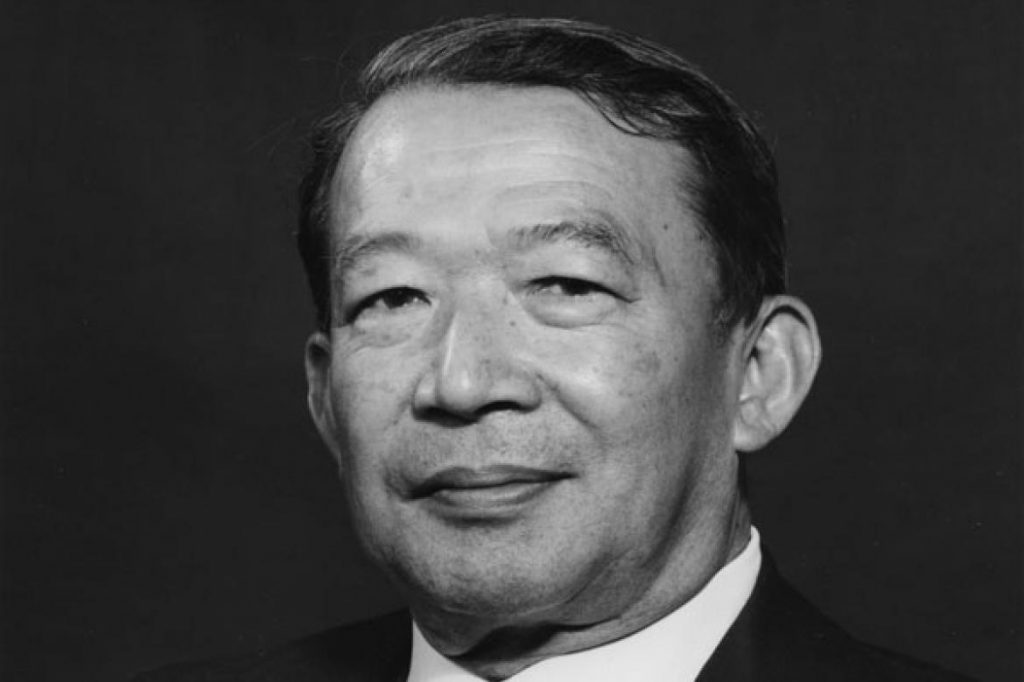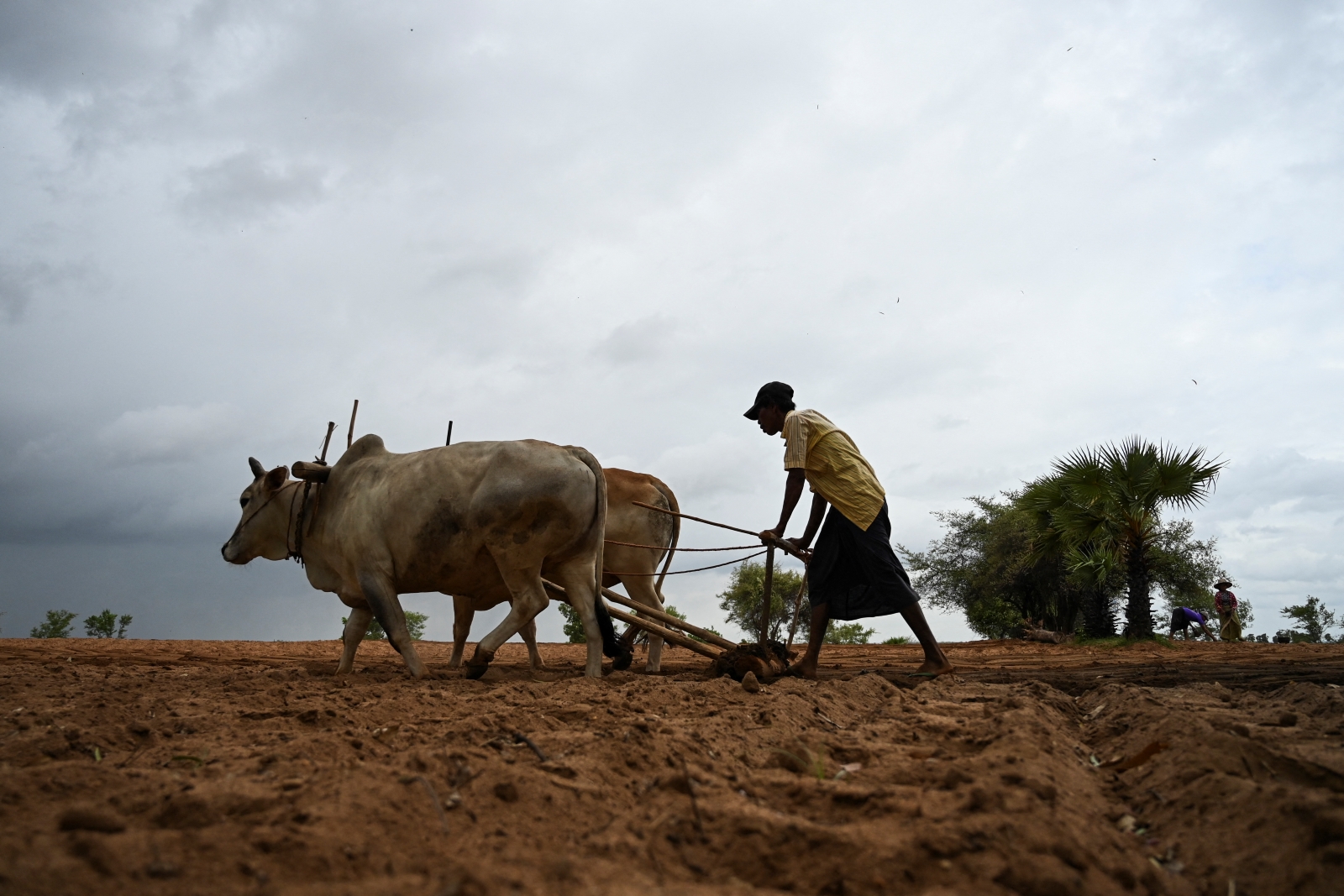A prodigy who produced his seminal work at just 28, celebrated economist U Hla Myint – who passed away on March 9 in Bangkok aged 97 – enjoyed a glittering career abroad but endured many frustrations in his home country.
By SEAN TURNELL | FRONTIER
IN A life spanning Myanmar’s colonial past, the country’s first experiment in democracy, the decades of military rule, and the coming again of democracy, U Hla Myint was an intellectual figure of truly global standing.
An economist whose ideas formed the theoretical basis for the policies of Asia’s “tiger” economies, it is a doleful fact that for most of his life Myanmar itself so comprehensively went in other directions.
In February 2012, however, Hla Myint made a triumphant return to Myanmar as the honoured guest of the Yangon Institute of Economics – a body that, although subject to countless transformations down the decades, was the direct descendent of the institution he re-created out of the wreckage of World War II.
Pausing neither for regret nor recriminations over what had been lost, he urged confidence in pushing ahead with reforms – political as well as economic. Openness to the world, to trade and exchange, to investment and ideas, to economic freedom – all would harness an “engine of growth” for Myanmar just as it had the country’s peers and neighbours. History had granted Myanmar a second chance, Hla Myint believed, and it should not be squandered.
From Pathein to London
Support more independent journalism like this. Sign up to be a Frontier member.
Hla Myint’s journey to global stature was an unlikely one. Born in 1920 in Bassein (now Pathein), his father died young and his mother subsequently ran a small shop to make ends meet. Notwithstanding these humble beginnings, Hla Myint’s promise did not take long to be noticed.
Accelerated through his schooling, Hla Myint was encouraged by his school headmaster to apply to study economics at the University of Rangoon at the age of only 14. Recognising a prodigy, and waiving the customary minimum age for new undergraduates of 15, the university admitted Hla Myint to its economics program in 1934.
In 1939 Hla Myint received a colonial government scholarship to pursue post-graduate study at the London School of Economics. At that great centre of economic thought, his talent (and his excellent education at Rangoon University) was once again quickly identified, and the LSE in turn waived its usual requirement that students first complete a Master’s degree, and enrolled Hla Myint immediately in its PhD program.
With many of the great British economists of this era called up into wartime government service, Hla Myint came under the wing of the famed Austrian economist Mr Friederich Hayek, who would go on the win the Nobel Prize in Economics in 1974. Hayek was at that time putting the finishing touches to The Road to Serfdom, the book that would make his name and legacy. Hla Myint liked Hayek, finding him a “genuine liberal”.
Of no little personal import, Hla Myint also met his wife, the then Ms Joan Morris, while at the LSE. She was studying economic history, a subject she would later teach at the University of Rangoon.
Hla Myint’s doctoral thesis was extraordinarily well received. His principal examiner, Mr John Hicks – who also won a Nobel Prize in Economics, in 1972 – not only passed it, but on its strength brought Hla Myint up to the University of Manchester on a fellowship so he could turn the thesis into a book. Published in 1948, Hla Myint’s A Theory of Welfare Economics is regarded as a seminal work in the field, and set the intellectual foundations for all his subsequent work.
‘Isolated and besieged’
In 1946 Hla Myint returned to Myanmar to become professor of economics at Rangoon University, and to re-create a functioning economics department that was now largely denuded of the foreign academics that once constituted its core teaching and research staff. Hla Myint arrived at a university, and a country, devastated by war.
The university buildings that remained were primarily being used to house recuperating soldiers and displaced civilians. For the first few months the economics “department” consisted of little more than a desk in a corridor, while the first post-war classes took place in hastily constructed bamboo huts.
Hla Myint himself did not come to the university empty-handed. Before leaving Oxford he had been given £500 by the British government to buy books to restock the library, a sum he thought well spent on resources that “provided the basis of the education of successive generations of economics students at Rangoon”.
But Hla Myint’s institution-building idyll was soon “spoilt” – in his words – by his drafting into service as economic adviser to Myanmar’s new government soon after the country achieved independence in 1948.
This spell as an economic adviser to U Nu, independent Myanmar’s first prime minister, was not a happy one though, and it would soon lead to Hla Myint’s departure from Myanmar once more. Frustrated “by long and fruitless meetings”, Hla Myint felt he was utterly out of step with the government’s economic policymaking, and that he “had little to contribute” towards its vision of a state-led, semi-socialist economy.
“Dejected and confirmed to my belief that I had no future as an economic adviser in [Myanmar],” Hla Myint returned to England to take up a post as lecturer in colonial economics at the University of Oxford.
During his time as economic adviser to U Nu, Hla Myint had been especially troubled by the State Agricultural Marketing Board, a body set up to be the monopoly rice exporter. By paying farmers below the world market price for their crop, the SAMB was used as the primary funding vehicle for state-owned industry and other schemes.
Matters came to a head in 1950, when Hla Myint “approached Prime Minister U Nu to explain that Burma’s rice export industry was being strangled to death both by the government policy … and by the ‘dead weight’ loss from the sheer inefficiency and corruption” of the SAMB. Hla Myint told U Nu that the only way to save Myanmar’s rice export sector was to abandon the SAMB, and allow both private and foreign investment to re-enter the industry. This advice, Hla Myint recalled, was “totally unacceptable to U Nu”, who regarded it as a return to the “much hated ‘colonial’ system of laissez-faire”.

The author with U Hla Myint in a photo taken in Bangkok on June 25, 2015. (Supplied)
In 1958, however, Hla Myint returned to Myanmar once more to serve as rector of Rangoon University. It was, he said, out of “a residual sense of obligation” to his home country. He was confident he might be able to do good; he reasoned that even if he lacked the political abilities to be an economic adviser then at least education was something upon which his own priorities, and that of the Myanmar government’s, should be in accord.
Alas, his time as rector was no happier than his earlier stint as an adviser. In 1958 the university was in turmoil, roiled by student strikes, declining academic standards, soft marking and other maladies that Hla Myint tried hard to lean against, but he felt isolated and besieged.
The end of Hla Myint’s tenure as rector came finally in 1962 when the chief of Myanmar’s armed forces, General Ne Win, took power in a military coup. Quickly establishing a program of extreme nationalism and doctrinaire state socialism (all under the rubric “the Burmese Way to Socialism”), one of the first acts of the new regime was to move against foreigners in the country.
Most significantly, these included substantial numbers of ethnic Chinese and Indians, many of whom had lived in Myanmar for generations. Hla Myint described this as the “last straw”. “I resigned from my rectorship to return to Oxford, never to work again in [Myanmar].”
A prodigious output
Hla Myint taught and researched at Oxford until 1965, when he returned to his old stomping ground of the LSE. He remained at the LSE until his retirement in 1985, whereupon he was appointed professor emeritus.
During his tenure at Oxford and the LSE Hla Myint was to make an array of lasting contributions to economics. Many of these centred on the question of how openness to trade and exchange contributed to economic development. In this, Hla Myint worked very much within the “classical tradition” in asking the big questions of what brought about the wealth and prosperity of nations.
Expressed across numerous books and dozens of academic papers, Hla Myint’s contribution was not just to re-assert the importance of free trade, capital accumulation and international specialisation – all central to his understanding of the classical narrative – but also to emphasise the importance of improving agriculture first.
Writing about the experiences of the Asian tiger economies that most closely followed his ideas, Hla Myint suggested that Taiwan and South Korea were able to achieve rapid growth in labour-intensive manufactured exports via the trading, financing, marketing and infrastructure networks built out of a vibrant agricultural sector. In Hla Myint’s view industry did not emerge out of cumbrous bureaucratic planning, but from close human contact between small farmers and industrialists that released the latter’s “latent entrepreneurial talent”.
In “retirement”, Hla Myint consulted occasionally for the World Bank, while keeping up a vast output of scholarly publications. In 2005, and upon the death of his wife, he resettled in Bangkok.
Hla Myint’s return
Hla Myint returned to Myanmar in 2012 to great acclaim. Within a year, and despite being in his 10th decade, Hla Myint rejoined the policy fray in a series of letters published in the local press that opposed a short-sighted effort by elements in the U Thein Sein administration to return to state-determined minimum rice procurement prices.
Recalling his earlier struggles against state control via the SAMB, Hla Myint wrote that the real problem of Myanmar’s agriculture sector (and economy more broadly) was that of “unnecessary government regulations and out-dated laws … causing delays and providing opportunities for bribe taking”. The solution: “the liberalisation of the economy, abolishing unnecessary regulations, is a ‘costless’ way of reducing transactions costs and improving Myanmar’s marketing and credit system”.
Such policies “may not have the populist appeal of a minimum guarantee rice price policy”, but “if successfully carried out … would not only increase the price which the up-country farmers would receive for their paddy, but would also have favourable effects on the country at large”, he wrote.
Regarding Myanmar’s economic transition more broadly, Hla Myint maintained “an attitude of cautious optimism” and a “hope that through a process of learning by doing and technical assistance from abroad, [Myanmar will] progress slowly but sufficiently enough to carry her beyond the dangers of reverting to her previous economic isolation”. But he also cautioned that this required patience.
As he warned back in 1973, and at a time when current events in Myanmar must have seemed inconceivable, during economic reform:
“… tensions can arise both from low material incomes and from the discontent created by ‘the revolution of rising expectations’, impatient for quick results. Economic development plans, however, are generally of a long-term nature, involving a considerable time-lag before their fruits are ready. In the meantime, they may create a considerable amount of dislocation, discomfort and deprivation for the people without producing quick benefits. Contrary to public belief, the vigorous pursuit of economic development policies designed to raise the level of material income in the future may frequently intensify, rather than reduce, the existing level of discontent.”
Hla Myint’s passing comes out a time when Myanmar is again in a position to redeem its promise. Delivering on it will be hard, but embracing the ideas of Myanmar’s greatest economist will surely not be a bad place to start.







